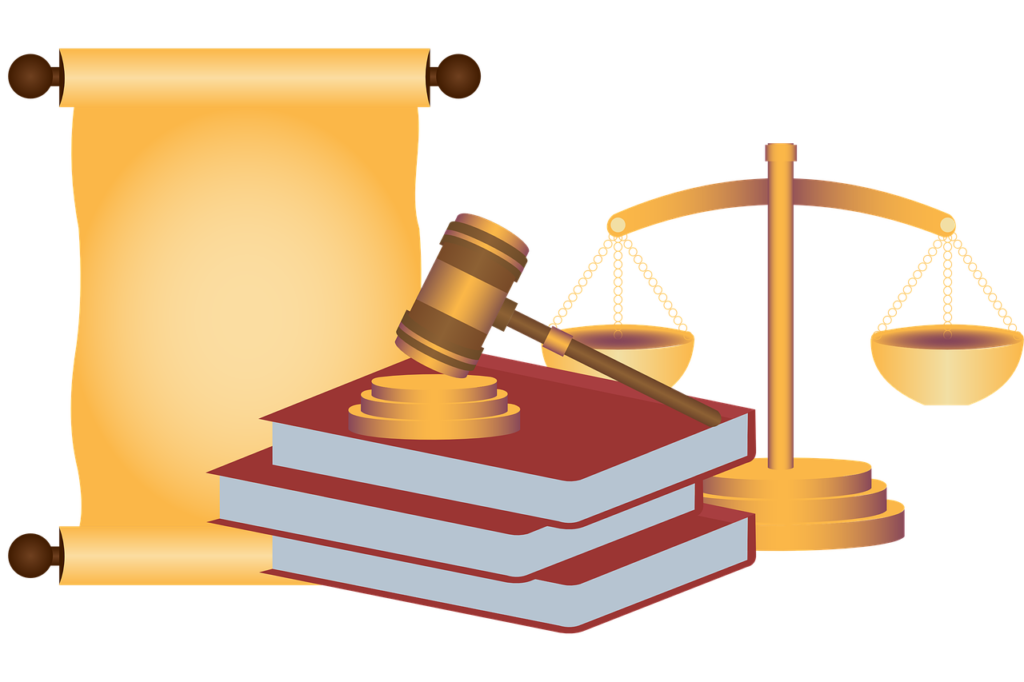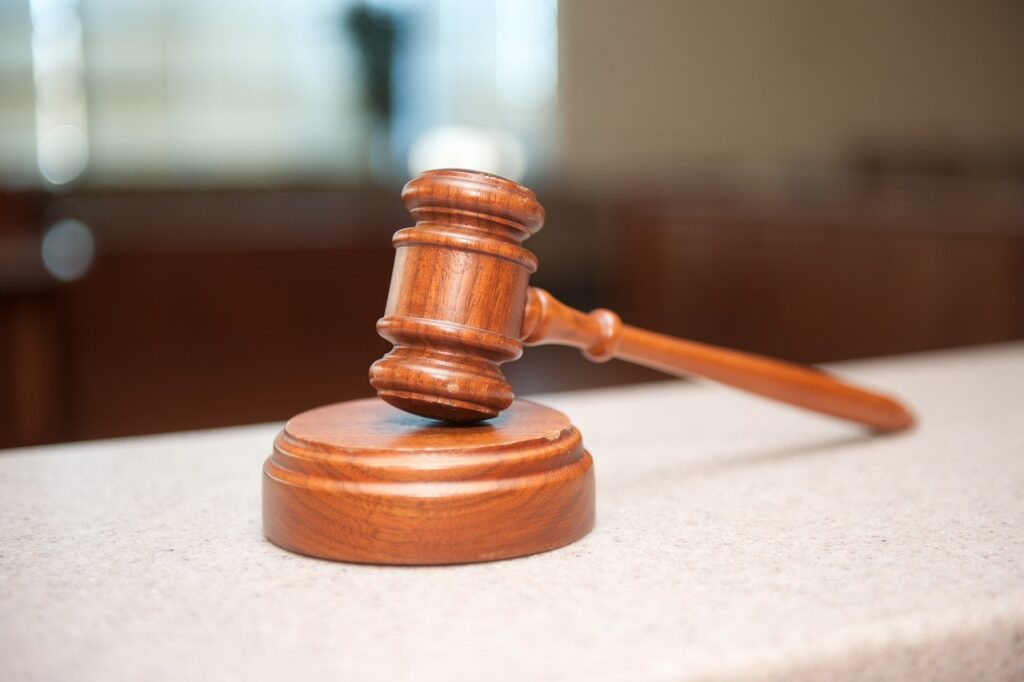Published On: 8th October, 2024
Authored By: Shriharshini N Gadala
Lords Universal College of Law
Name of the Court: Supreme Court of India
Bench: Hon’ble Mr. Justice V.R. Krishna Iyer Mr. Justice D.A. Desai Mr. Justice O. Chinnappa Reddy
Date of Judgment: 17 August
[1] THE CASE’S FACTS
While employed as a reader at Saurashtra University, the petitioner, Dr. Madhav Hayawadanrao Hoskot, kept his M.Sc. and Ph.D. degrees. Sections 417, 467, 471, and 511 of the Indian Penal Code, 1860, were used to convict him of the felony of attempting to counterfeit university degree certificates. Since he was raised in a middle-class household, the focus of the current penalty is on the corrective element, which is crucial, and the public prosecutor was given a simple life sentence and a penalty; he had no objections to the usual term. Subsequently, the State and the Appellant submitted independent appeals to the High Courts. The appellant contested his conviction while the State filed a lawsuit to increase the jail term. In 1973, the appellant’s claim was dismissed by the High Court, which increased the sentence by three years of incarceration.Four years following the High Court’s decision, in 1978, the petitioner submitted a Special Leave Petition to the Supreme Court of India. The High Court’s tardy delivery of the petitioner’s copy of the judgement justifies this delay.
ISSUES
- Whether the Supreme Court will uphold the supplicant’s special leave solicitation or not.?
- Is the right to free legal aid handed and guaranteed to captures in India under Article 21 of the Constitution?
[2]CONTENTIONS
Arguments in Support of the Petitioner:-
The petitioner’s professed attorney argued that, by Sections 363( 2) and 387 of the Code of Criminal Procedure, on December 10, 1973, the petitioner requested a dupe of the High Court’s decision through the jail administrations. nonetheless, he no way entered a dupe of the ruling In addition, it was claimed that the supplicant was impelled to file a solicitation for condonation after getting a alternate certified dupe from the High Court because he’d lost his capability to file a Special Leave solicitation to appeal. The educated attorney also called attention to the absence of the petitioner’s hand on the register for getting a dupe of the judgment. It’s thus egregious that the supplicant was noway given a dupe of the judgment.
Arguments put forth by the respondent:-
The respondent’s knowledgeable attorney made an argument that his customer was not to condemn for the holdback. According to the argument, a clerk did give a dupe of the High Court’s decision but latterly returned it because it was missing a solicitation for mercy from the government asking for the judgment to be changed. Due to the forenamed fact, the petitioner entered a dupe of the ruling in 1978.
[3]JUDGMENT
The Supreme Court dismissed the SLP saying that matters related to the public significance or affecting the morality of the court are taken under Composition 136 of the Constitution. It’s the State’s responsibility to give free legal aid to the internee if they’re unfit or impaired from acquiring the same. papers 142, 194 read with Composition 21 & 39- A give power to the court for the below- mentioned case. Justice Krishna Iyer in M.H. Hoskot v. State of Maharashtra, advised that the Court not to mistake the corrective approach with captivity confinement and nominal discipline. When several innocent people are at threat of getting victims, soft- judgment justice is obvious injustice. It was also decided that countries should give free legal backing to indigent, depressed people who are unfit to go it. With Articles 14 and 19, this case has broadened the compass of Composition 21, as well as addressed the issue of procedural and legal detainments.
[4]RATIO DECIDENDI
The right to life and personal liberty are discussed in Article 21 of the Indian Constitution. It states that no one may be deprived of these rights unless the law-established process—that is, a fair and reasonable procedure—is followed. In the Maneka Gandhi v. Union of India case, Article 19 reads with Article 21, which established that individual liberty cannot be disregarded in the absence of a just and reasonable judicial process. The prisoner should receive a copy of the verdict in a timely manner so that he can file a case in a higher court if he decides to appeal. As this is the state’s responsibility, inmates with various disabilities who are poorer should receive free legal aid. The court must provide a lawyer to the prisoner in order to administer justice if the inmate is unable to exercise his constitutional and statutory rights of appeal, including the right to free legal aid. The prison administration is responsible for providing the necessary facilities for the inmate to exercise their right to appeal. According to Article 136 of the Indian Constitution, the Court is not allowed to stray from the request in order to ensure that all litigants, both civil and criminal, receive justice.
OBITER DICTA
The appellant was above the financial pressure to earn a living through illegal methods. Therefore, it is remarkable that the Public Prosecutor agreed to a light penalty of guilt for the serious allegations on behalf of the State. White-collar criminals should be treated harshly by the government, and they shouldn’t be encouraged by a small punishment. The trial court in this instance has confounded nominal punishment for major social offences with the correctional approach to jail treatment. Every individual expects special solicitude from the Supreme Court because it is the final court of justice.The criminological foundation of punishment is social defence. The trial judge in this case is unable to distinguish between nominal punishment on the edge of decriminalising significant social offences and the correctional approach to jail treatment.
FINAL RESULTS
The Supreme Court ruled that all low-income defendants should have the right to free legal representation regardless of the seriousness of the alleged offence. Furthermore, for the proper administration of justice, not only the trial stage, all three levels of legal assistance should be provided. In this case, the right to free legal aid was considered for the first time. In rendering the decision, Justice Krishna Iyer took into account Article 14(3) of the International Covenant on Civil and Political Rights, which emphasises the importance of legal aid for a poor accused. In this instance, the petitioner did not seek legal aid; instead, he represented himself. Poverty in India will prevent people from being able to protect and defend their rights and illiteracy, hence it was decided that a fundamental element of fair procedure is the right to legal aid. The case touches on the prisoner’s right to appeal, the authorities’ duty to provide copies of the judgement, and the State’s duty to provide legal services, so I don’t think the verdict is just about the status of free legal aid and assistance in India.
EFFECT OF THE RULE
In the current situation, the inmate’s justice rate has improved. By denying him the chance to appeal and by not offering him legal aid, the prisoner’s voice was silenced in this instance. How about the inmates who suffer slightly from these kind of violations? This is just one case that has gained attention. Regardless of whether their fundamental rights—the right to life and the right to personal liberty set forth in Article 21—are violated, prisoners are compelled to serve their sentences. The supreme court in the issue at hand has established some crucial rules that must be adhered to in every instance.
The inmates must have free access to the court’s transcript of the ruling. The inmates must get a signed acknowledgement at the time of delivery of the transcript. 3. The prisoner should have access to all such facilities so that he can use his right to file an appeal, revision, or other similar right. 4. After assessing the seriousness of the offence, the court will select a lawyer for the inmate if he is unable to hire one to present his case. The jail administration should adhere to the uniform concept in addition to the rules set forth by the supreme court to guarantee that the inmates receive justice and that any infringement of their rights is addressed.
References:
[1] Nieharika Sharma.Manupatra.https://articles.manupatra.com/article-details/Case-Commentary-on-MH-Hoskot-vs-State-of-Maharashtra
[2] Abhishek Kumar. Lawtimesjournal.in.Madhav Hayawadanrao Hoskot vs State Of Maharashtra on 17 August, 1978.Retrieved
from https://lawtimesjournal.in/madhav-hayawadanrao-hoskot-vs-state-of-maharashtra/
[3] scribd.M.H.Hoskot vs State of Maharashtra.Retrieved from https://www.scribd.com/document/590118327/IJS
[4] Abhishek Kumar.Lawtimesjournal.in.Madhav Hayawadanrao Hoskot vs State Of Maharashtra on 17 August, 1978.Retrieved from https://lawtimesjournal.in/madhav-hayawadanrao-hoskot-vs-state-of-maharashtra/



